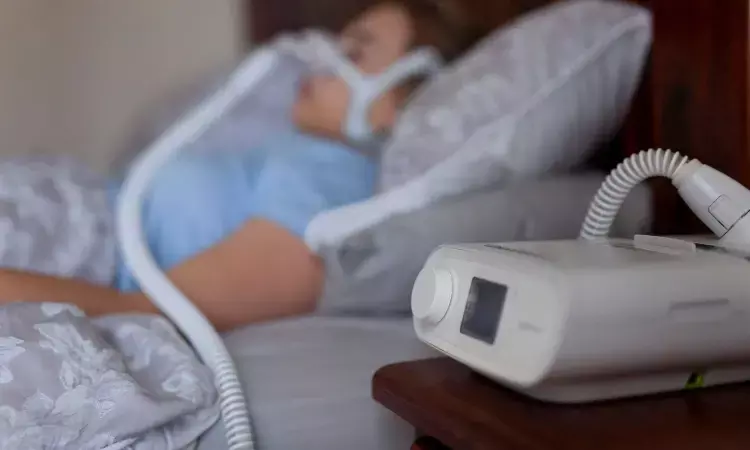- Home
- Medical news & Guidelines
- Anesthesiology
- Cardiology and CTVS
- Critical Care
- Dentistry
- Dermatology
- Diabetes and Endocrinology
- ENT
- Gastroenterology
- Medicine
- Nephrology
- Neurology
- Obstretics-Gynaecology
- Oncology
- Ophthalmology
- Orthopaedics
- Pediatrics-Neonatology
- Psychiatry
- Pulmonology
- Radiology
- Surgery
- Urology
- Laboratory Medicine
- Diet
- Nursing
- Paramedical
- Physiotherapy
- Health news
- Fact Check
- Bone Health Fact Check
- Brain Health Fact Check
- Cancer Related Fact Check
- Child Care Fact Check
- Dental and oral health fact check
- Diabetes and metabolic health fact check
- Diet and Nutrition Fact Check
- Eye and ENT Care Fact Check
- Fitness fact check
- Gut health fact check
- Heart health fact check
- Kidney health fact check
- Medical education fact check
- Men's health fact check
- Respiratory fact check
- Skin and hair care fact check
- Vaccine and Immunization fact check
- Women's health fact check
- AYUSH
- State News
- Andaman and Nicobar Islands
- Andhra Pradesh
- Arunachal Pradesh
- Assam
- Bihar
- Chandigarh
- Chattisgarh
- Dadra and Nagar Haveli
- Daman and Diu
- Delhi
- Goa
- Gujarat
- Haryana
- Himachal Pradesh
- Jammu & Kashmir
- Jharkhand
- Karnataka
- Kerala
- Ladakh
- Lakshadweep
- Madhya Pradesh
- Maharashtra
- Manipur
- Meghalaya
- Mizoram
- Nagaland
- Odisha
- Puducherry
- Punjab
- Rajasthan
- Sikkim
- Tamil Nadu
- Telangana
- Tripura
- Uttar Pradesh
- Uttrakhand
- West Bengal
- Medical Education
- Industry
CPAP fails to improve glycemic control or variability in diabetes patients with sleep apnea

USA: Positive airway pressure (PAP) fails to improve glycemic control or variability among patients with moderate-to-severe OSA (obstructive sleep apnea) and type 2 diabetes, a recent study has pointed out. The findings appeared in the CHEST journal on April 13, 2023.
Exploratory analyses revealed that in women, PAP therapy may improve glucose variability. Bedtime and post-dinner glucose levels were higher in those who did not receive PAP therapy.
Glycemic variability is linked with an increased risk for CVD (cardiovascular disease) in type 2 diabetes patients independent of HbA1c (glycosylated haemoglobin) levels. Given the conflicting evidence on the effect of PAP therapy for obstructive sleep apnea on HbA1c, exploring its impact on glycemic variability is valuable.
R. Nisha Aurora, NYU Grossman School, New York City, NY, USA, and colleagues determined if using PAP therapy for OSA improves glycemic variability in type 2 diabetes patients in a randomized controlled trial.
The trial involved 184 patients with type 2 diabetes and moderate-to-severe OSA. Participants received either three months of PAP therapy with lifestyle counselling or lifestyle counselling alone. Endpoints included standard deviation of glucose levels and other metrics derived from CGM (continuous glucose monitoring) and self-monitoring of blood glucose.
The study led to the following findings:
· No differences between the two groups were noted in either primary or secondary CGM endpoints.
· Average PAP therapy use was 5.4 hours per night (SD: 1.6).
· Exploratory analyses by sex showed remarkable differences in the primary and secondary outcomes.
· PAP therapy in women was linked with improvement in the standard deviation of glucose levels, with 3.5 mg/dl being the mean difference of change between intervention and control groups.
· PAP therapy was also linked with lower post-dinner and bedtime glucose levels: 20.1 mg/dl and 34.6 mg/dl, respectively.
"In patients with moderate-to-severe obstructive sleep apnea and type 2 diabetes, PAP therapy did not improve glycemic control or variability," the researchers concluded.
Reference:
Aurora, R Nisha, et al. "Effects of Positive Airway Pressure Therapy On Glycemic Variability in Patients With Type 2 Diabetes and Obstructive Sleep Apnea: a Randomized Controlled Trial." Chest, 2023.
Dr Kamal Kant Kohli-MBBS, DTCD- a chest specialist with more than 30 years of practice and a flair for writing clinical articles, Dr Kamal Kant Kohli joined Medical Dialogues as a Chief Editor of Medical News. Besides writing articles, as an editor, he proofreads and verifies all the medical content published on Medical Dialogues including those coming from journals, studies,medical conferences,guidelines etc. Email: drkohli@medicaldialogues.in. Contact no. 011-43720751
Next Story


